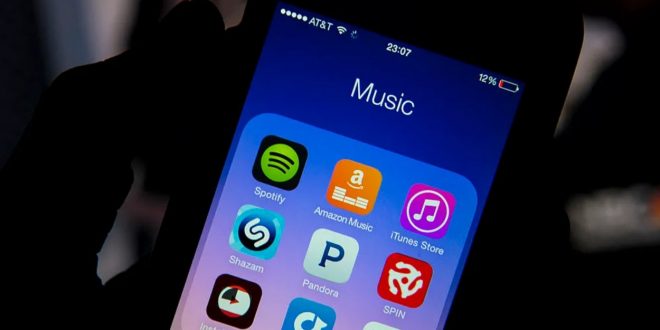The European Union has fined Apple €1.84 billion for breaking antitrust laws in the music streaming services market on its iOS platform.
Apple’s penalty is centered around their implementation of anti-steering provisions, limiting music streaming apps from informing consumers about lower-priced options outside of Apple’s App Store.
Apple, with its own music streaming service, Apple Music, has faced criticism from competitors like Spotify, who claim that the restrictions give Apple an unfair advantage as the platform owner.
Today, the Commission stated that the limitation had hindered European consumers from freely choosing.
“Apple’s regulations have ultimately had a negative impact on consumers,” stated the EU’s competition chief, Margrethe Vestager, at a Commission press briefing where the decision was revealed. Important details were intentionally kept from consumers, preventing them from making well-informed decisions.
Some users might have ended up paying a higher price because they didn’t know they could get a discount by subscribing outside of the app. Some users might have struggled to subscribe to their favorite music streaming service because they couldn’t locate it.
Apple’s rules were found to withhold important information on prices and features of services from consumers, according to the Commission. She stated that they are not essential or reasonable for the operation of the App Store on Apple’s mobile devices. “We find these trading conditions to be unjust as they were imposed without negotiation by a powerful company.”
In March 2019, Spotify filed an antitrust complaint against Apple, claiming that the App Store rules restrict choice and innovation, ultimately harming the user experience. Spotify also accused Apple of unfairly favoring its own apps over competitors, creating a conflict of interest.
In June 2020, the EU initiated an antitrust investigation of the App Store due to concerns about conditions and restrictions imposed by the tech giant. These included anti-steering provisions that restricted developers from directing users to cheaper payment options outside of Apple’s store, potentially distorting competition.
In April 2021, the European Commission issued a formal statement of objections against Apple, alleging that the company’s practices on the App Store are anti-competitive in the music streaming services market.
However, nearly two years later, the EU revisited the case by issuing a revised statement of objections. This new statement dropped a previous charge concerning Apple’s mandate for music streaming apps to utilize its payment processing technology and instead concentrated solely on the anti-steering provisions.
Last month, the FT reported that Apple was potentially facing a €500 million antitrust penalty related to music streaming. However, the fine that the Commission revealed today is significantly higher. The fine imposed on Apple for violating the EU’s regulations amounts to approximately €40 million. Additionally, a lump sum of €1.8BN has been included to address the non-monetary harm to consumers and serve as a deterrent.
“The significant fine we are imposing today is a reflection of Apple’s financial influence and the negative impact of Apple’s actions on millions of European users,” she stated.
Apple has issued a scathing blog post in response to the Commission’s decision, criticizing the EU for not finding any credible evidence of consumer harm and overlooking the positive aspects of the market.
The blog post criticizes Spotify for attempting to alter the regulations of the App Store to align with its business objectives. Apple claims that the music streaming platform has been trying for years to create competition complaints without much basis in reality. The blog post suggests that complaints from a nearby tech startup may have influenced EU enforcers.
“Apple argues that this decision is not based on existing competition law,” the company states. The Commission is making an attempt to enforce the DMA [Digital Markets Act] before it officially becomes law. European consumers now have a plethora of options to choose from. It is ironic that the recent decision solidifies the leading position of a successful European company in the digital music market.

 Tech Gadget Central Latest Tech News and Reviews
Tech Gadget Central Latest Tech News and Reviews



